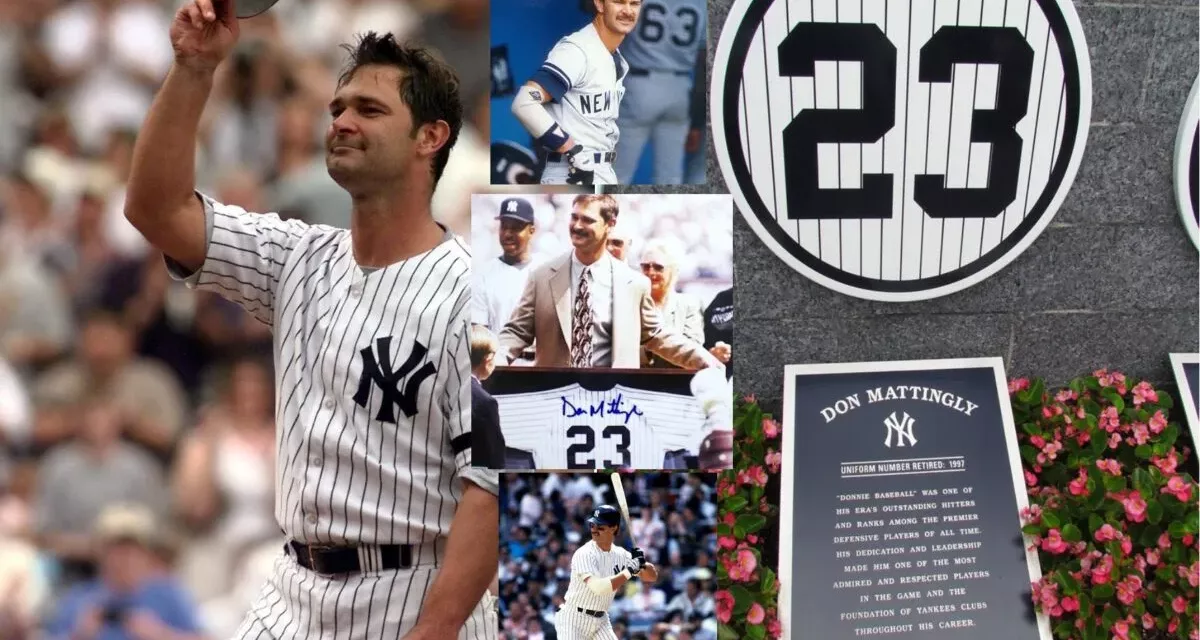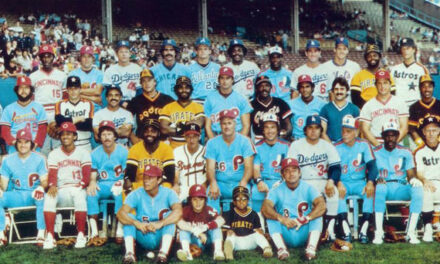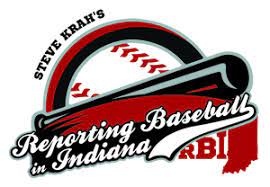Don Mattingly is a Hoosier baseball legend, born and raised in Evansville, Indiana. He was able to win a state championship while at Evansville Memorial and was drafted out of high school by the New York Yankees. The reason of this post is to not only look at who is the "Hit Man", but also specifically to turn back the clock to 1984 and the American League batting title chase that didn't just see two men fighting down the stretch to win, but two teammates fighting down the stretch to win the title.
Early life and career
Born on April 20, 1961, in Evansville, Indiana, Donald Arthur Mattingly was the youngest of five children to Bill and Mary Mattingly. Bill, a dedicated mailman, instilled in his youngest son a strong work ethic that would significantly shape Don’s future. As the youngest in the family, he eagerly joined his older brothers in neighborhood games. At just four years old, Don was smaller than most of the other players, but his fierce competitive spirit allowed him to hold his own in any ball game.
The rhythmic sound of Wiffle balls striking the metal garage door and spirited matches amid the closely spaced trees in the neighborhood honed Don’s ability to drive the ball with finesse. During his time at Reitz Memorial High School, Don excelled in three different sports, making his mark as the football team’s quarterback, the basketball squad’s star point guard, and the baseball team’s power hitter. However, it was a pivotal moment during a 1976 American Legion baseball game that would change his life. Facing a formidable pitcher from Owensboro, Kentucky, who happened to be the Cincinnati Reds’ top draft pick that year, the freshman Don Mattingly notched two doubles against the star pitcher, drawing the attention of scouts.
Don Mattingly’s reputation continued to grow as he helped lead Reitz Memorial to an impressive 59-game winning streak, culminating with a victory in the Indiana state championship game during his junior season. By 1979, Don Mattingly had garnered considerable attention as a promising prospect, earning a brief write-up in Sports Illustrated for his remarkable achievements. Although most teams hesitated to draft the high-school standout due to expectations that he would attend college, the New York Yankees took a chance and selected him in the 19th round of the 1979 amateur draft. They subsequently signed him to a minor-league contract.
| Position | First baseman |
| Active years | 1982 to 1995 |
| Teams (years) | New York Yankees (1982–1995) |
| Draft | 1979 |
| Debut | September 8, 1982, for the New York Yankees |
| Last game | October 1, 1995, for the New York Yankees |
| Native place | Evansville, Indiana |
| Batted/Threw | Left/Left |
| All-STAR | 6× All-Star (1984–1989) |
| AL MVP | AL MVP (1985) |
| MLB Awards | 3× Silver Slugger Award (1985–1987) |
| NL Manager of the Year (2020) | |
| 9× Gold Glove Award (1985–1989, 1991–1994) | |
| Nickname | “Hit Man” and “Donnie Baseball” |
A star shining in the Bronx
The 1984 season witnessed a remarkable transformation in Don Mattingly’s offensive capabilities, notably his newfound power stroke. Even though he had never exceeded 10 home runs in a single minor league season, Don Mattingly had already crushed an astonishing 12 homers by the conclusion of June. Lou Piniella, serving as the Yankees’ hitting coach at the time, divulged his role in this impressive development. Piniella had worked tirelessly with the young hitter throughout the year, emphasizing the significance of maintaining balance and keeping the weight centered during the entire swing. This subtle adjustment in body weight resulted in a surge of power for Don Mattingly at the plate.
Don Mattingly’s incredible performance did not go unnoticed, and in July, he received his inaugural All-Star Game invitation, attributed to his outstanding .339 batting average and impressive power numbers. He made a crucial appearance during the game’s ninth inning as a pinch-hitter, with the American League trailing 3-1.
As the latter part of the 1984 season unfolded, Don Mattingly and his teammate Dave Winfield engaged in an electrifying race for the American League batting title. Winfield had a remarkable first half of the season, with his average soaring to .377 in early July. However, as August approached, Winfield’s form slightly waned, allowing Mattingly to close the gap. By the beginning of September, Don Mattingly held a .352 batting average, edging ahead of Winfield’s .351. This riveting competition for the batting crown captivated the imagination of New York City’s baseball scene.
The city’s newspapers, including the Daily News and the Post, offered daily coverage of the race, often dedicating entire pages to the contenders. In a city fervently hungry for baseball success, this batting race became a surrogate pennant race for ardent Yankees fans. Team owners embraced the competition, as it continued to fill the seats at Yankee Stadium, despite the Yankees trailing the Detroit Tigers by 15 games. The stadium’s scoreboard proudly displayed each player’s batting average to the ninth digit during the final two weeks of the season. The excitement was well-justified, given that no Yankee had won a batting crown since Mickey Mantle in 1956, and no pair of Yankees had ever finished as the top two hitters in the league.
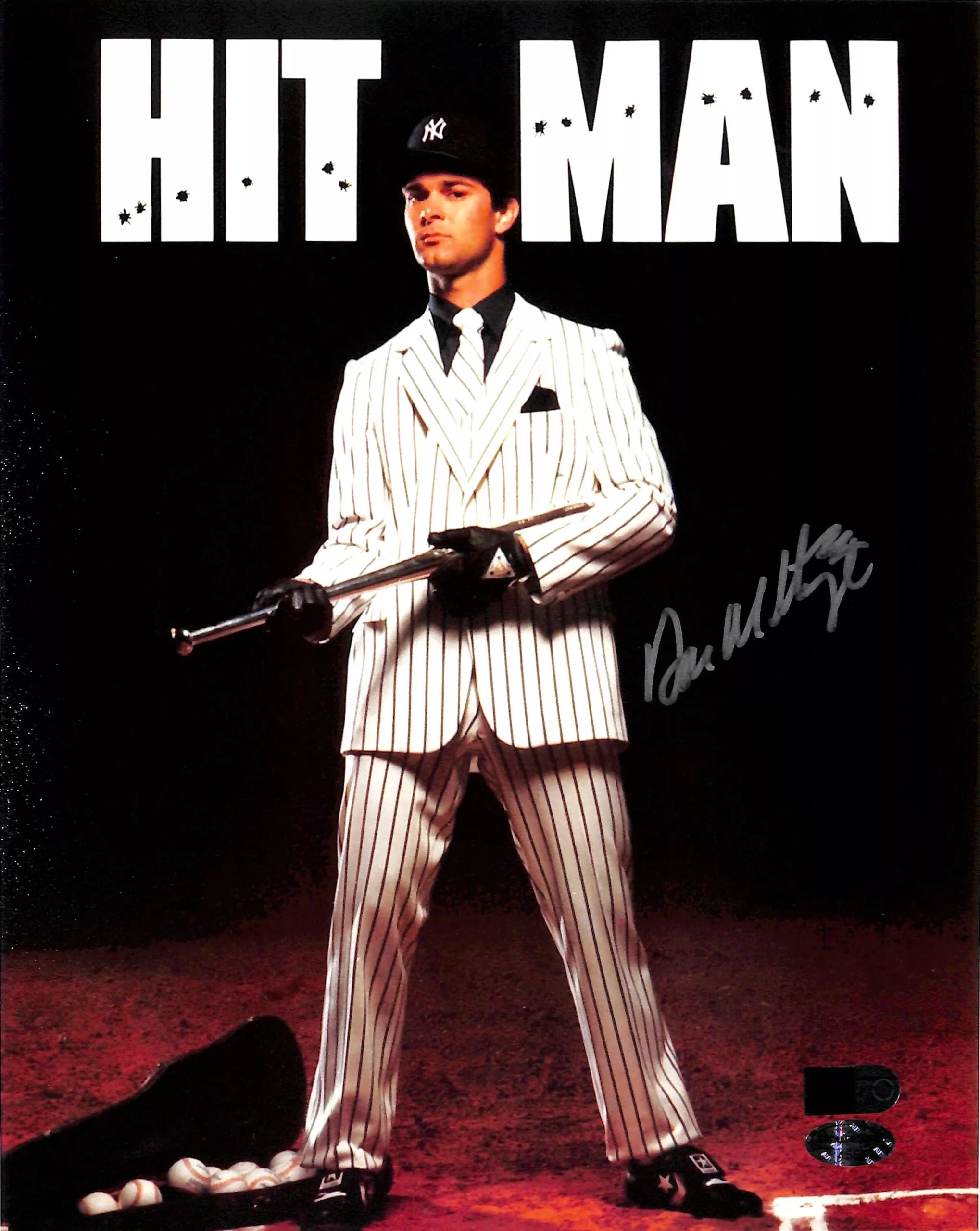
|
Date |
Mattingly |
Winfield |
|
9/24 (1) |
.344 (1-for-4) |
.341 (1-for-3) |
|
9/24 (2) |
.344 (2-for-5) |
.341 (1-for-3) |
|
9/25 |
.344 (1-for-3) |
.342 (2-for-4) |
|
9/26 |
.342 (0-for-4) |
.342 (1-for-4) |
|
9/27 |
.342 (1-for-3) |
.341 (0-for-1) |
|
9/28 |
.341 (1-for-4) |
.342 (2-for-5) |
|
9/29 |
.339 (0-for-3) |
.341 (1-for-4) |
The Race Between Two Teammates
Winfield had an exceptional month of June with a .476 average, which raised his season average to .368. He went hitless in only four games that month while he belted out multiple hits 15 times, including three games with five hits in each. By the All-Star break after July 8, he appeared to have an insurmountable 40-point lead over Mattingly (.370 to .330). Yet at the end of July his lead had diminished to only 7 points (Winfield dropped to .346 while Mattingly increased to .339.) Between August 17 and September 8, Winfield mounted another surge with a 20-game hitting streak that included a slash line of .427/532/.747. Yet on a calendar month basis, he had four months in which his batting average was below .300. Mattingly was more consistent from month to month than Winfield throughout the season. His best came during August, when he hit .383. But then in September, both players experienced virtual slumps, when compared with the rest of their seasons. Mattingly hit .319, while Winfield hit .290.
By September 21, Mattingly had overtaken Winfield, .346 to .344, and they were nip-and-tuck through the rest of the season. The table to the left illustrates the closeness of the race and how the batting averages progressed during the week leading up to the final game. The Yankees were tied with Boston for third place in the AL East going into the last day of the season. They had been out of contention for the division lead since April. Their opponent was the division-leading Detroit Tigers, who were completing the best season (104 wins) in franchise history.
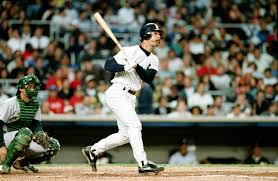
Down to the Last Game
A crowd of 30,602 showed up in Yankee Stadium for the season finale to see who would reign as the batting-average leader. Tigers rookie right-hander Randy O’Neal drew the starting assignment from manager Sparky Anderson. He had won his first two decisions as a September call-up by the Tigers. Yankees manager Yogi Berra countered with rookie left-hander Dennis Rasmussen, who held an 8-6 record. O’Neal was roughed up by the Yankees in the first inning; they scored three runs including one by Mattingly, who singled, and Winfield, who reached on a fielder’s choice. Mattingly led off the bottom of the third with a double and eventually scored, while Winfield drew a walk.
In the fourth, Mattingly again doubled for his third hit off O’Neal, scoring Andre Robertson, who had led off the inning with a single. Winfield got his first hit in the game, and Baylor doubled for the second time to score Mattingly and Winfield, making the score 7-1. With the game seemingly well in hand in the fifth inning, attention turned toward the batting race. Mattingly batted in his third consecutive inning and was retired for the first time in the game by Tigers reliever Sid Monge on a fly out. With the score 9-1 in the bottom of the sixth inning, Winfield flied out against Aurelio Lopez.
Mattingly got a bad-hop single to right off Willie Hernandez in his fifth at-bat in the eighth inning, while Winfield hit into a fielder’s choice. The game ended with a final score of 9-2. Tigers second baseman Scott Earl, who thought he would catch the groundball on Mattingly’s last at-bat, said, “I ranged over to get it, but at the last second it came up. I didn’t have a chance to get my glove up, and it bounced over my glove. I was aware of their race, but it didn’t matter to me who won it. If Winfield hit that same ball, the same thing would have happened. I just didn’t have time to react. It took a bad hop.” Mattingly’s four hits increased his final batting average to .343, while Winfield finished at .340 on his lone hit.
“Someone said if I didn’t get a hit the last time up and Winfield did, he’d have won by two-thousandths of a point,” Mattingly said. “Right then I knew there was no way I could be a loser. Neither of us could be a loser. But I guess that’s the American way – someone has to win and someone has to lose.” He added, “I never thought it would come down to the last at-bat. You couldn’t write it any better. It’s been a storybook year for me and it will be hard to duplicate. However, if Mattingly hadn’t made the last hit the correct calculation would have been .00053 (.34215 to .34162) difference in Winfield’s favor.
When Winfield hit his groundball in his last at-bat in the eighth inning, forcing Mattingly out at second, Mattingly first returned to the dugout and then reemerged to meet Winfield at first base, where they shook hands and embraced. Berra sent Scott Bradley to pinch-run for Winfield, and the two hitting leaders walked off the field together. Mattingly said, “Dave has been a great person through this whole thing. He handled himself like a gentleman. I have great respect for him.” Mattingly said he and Winfield had spoken a couple of weeks earlier and “agreed there was no need for friction” during their head-to-head battle.
However, Bill Madden of the New York Daily News asserted that Winfield was not as amiable about the outcome of the batting race, noting that Winfield hastily checked out of his locker and exited a side door of the clubhouse in order to avoid teammates and reporters. The batting title was Mattingly’s only one during his 14-year career, although he finished as runner-up (to Wade Boggs’s .357) with a .352 mark two years later. It was the Yankees’ first since Mickey Mantle’s in 1956.
The Mattingly-Winfield duel was reminiscent of other years when teammates’ competitions for the batting average title were settled on the last day of the season. Willie Mays won out over Giants teammate Don Mueller in 1954, and George Brett edged Royals teammate Hal McRae in 1976.

